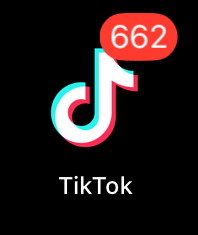Tiktok Is Dead, Long Live Tiktok
What the Tiktok ban reveals about the disgusting nature of modern American politics
TikTok is Dead, Long Live TikTok
TikTok is dead—or at least, it was for about 16 hours. For a brief, surreal moment, one of the most popular apps in the United States went dark. Though the platform has been turned back on, its future remains murky. The damage has already been done. The absurd comedy of errors that led to its ban—and the equally absurd possibility of its unbanning—paints a grim picture of American politics.
This isn’t just about TikTok. It’s about the broken systems of power that govern our lives and the darkly comical ways they reveal their dysfunction.
The Death of Public Spaces
Hannah Arendt argued that public spaces—the forums where ideas are shared and debated—are essential for democracy to thrive. TikTok, for all its flaws, served as one of the largest digital public squares in modern history. It connected people, amplified voices, and fostered communities in ways no traditional institution could.
And yet, in America’s increasingly bureaucratic and fragmented democracy, such a space became a threat. The ban, initially driven by fears of foreign influence, quickly became a farce. It wasn’t just the rationale that was suspect—it was the process. Instead of robust debate, the ban was quietly slipped into a broader aid package. No hearings, no meaningful oversight, no consideration for the 170 million Americans who rely on the platform. This is exactly the kind of erosion of public space that Arendt warned about—a government that acts in secrecy, cutting citizens off from the forums that sustain democracy.
Kafka’s Bureaucratic Nightmare
The TikTok saga also echoes Franz Kafka’s vision of bureaucratic absurdity. Consider this: TikTok was banned because Donald Trump felt slighted. His rallies were disrupted when TikTok users organized mass registrations with no intention of showing up. It was an act of grassroots trolling that made him look ridiculous—and in response, he sought revenge. The ban was part vendetta, part overreach, and entirely arbitrary.
Now, in an even more surreal twist, TikTok’s fate might rest on appeals to the very man who started the effort to destroy it. Trump recently admitted he has a "warm spot" for TikTok because it helped him get re-elected in 2024. The farce is glaring: TikTok was banned because it was bad for Trump, and it might now be unbanned because it was good for him. The circularity of it all feels distinctly Kafkaesque—a system that makes no sense yet wields immense power over millions of lives.
What would Arendt say about this? Likely, she’d point to how easily democratic principles are abandoned when leaders prioritize their egos over the public good. The appeals to Trump, with their almost medieval undertones of petitioning a king for mercy, are an indictment of how far we’ve strayed from the foundational ideals of this country. America was built on the rejection of whims and decrees. Yet here we are, watching an entire platform rise and fall based on one man’s mood.
Madison and the Tyranny of Factions
In Federalist No. 10, James Madison warned of the dangers of factions—groups that pursue their own interests at the expense of the common good. The TikTok ban is a textbook example. What began as a personal vendetta snowballed into bipartisan momentum, as lawmakers seized on the narrative of foreign interference to advance their agendas. Instead of addressing legitimate concerns about digital privacy and security across platforms, Congress focused narrowly on TikTok, ignoring the glaring issues with American-owned companies like Facebook and Twitter.
Madison’s fears have come to life: a faction-driven decision made without transparency or accountability. And just like that, a platform central to how millions of Americans communicate was nearly dismantled.
The Erosion of Trust
For millennials, this betrayal cuts deep. Raised to believe in institutions, we were taught that if we followed the rules—got an education, worked hard, contributed to society—things would work out. That promise has disintegrated under the weight of political dysfunction and economic inequality. The TikTok ban is another blow to a generation already disillusioned by a government that seems incapable of protecting its people or their freedoms.
And for Gen Z? They’ve grown up in a world where disillusionment isn’t a shock—it’s the norm. Unlike millennials, who feel the sting of betrayal, Gen Z doesn’t have the same expectations to lose. They’ve never known a government that works. In some ways, I envy their clarity; in others, I pity their lack of hope.
A Crossroads for America
What’s terrifying isn’t just the ban itself; it’s what it represents. If a platform as massive and influential as TikTok can be dismantled—or resurrected—without public debate, what’s next? How long before other spaces for expression are eroded under the guise of national security or political expediency?
The broader picture is even more grim. America’s government is paralyzed when it comes to addressing the real issues of our time—gun violence, education, healthcare—yet it moved with startling efficiency to ban TikTok. This contradiction lays bare the priorities of those in power: control over progress, money over meaning.
In the end, this isn’t about left versus right. It’s about top versus bottom. It’s about a government more concerned with consolidating its authority than empowering its people. As Arendt, Kafka, and Madison remind us in their own ways, democracy doesn’t die in a single dramatic act—it fades away when its public spaces are eroded, its systems become absurd, and its factions overwhelm the common good.





